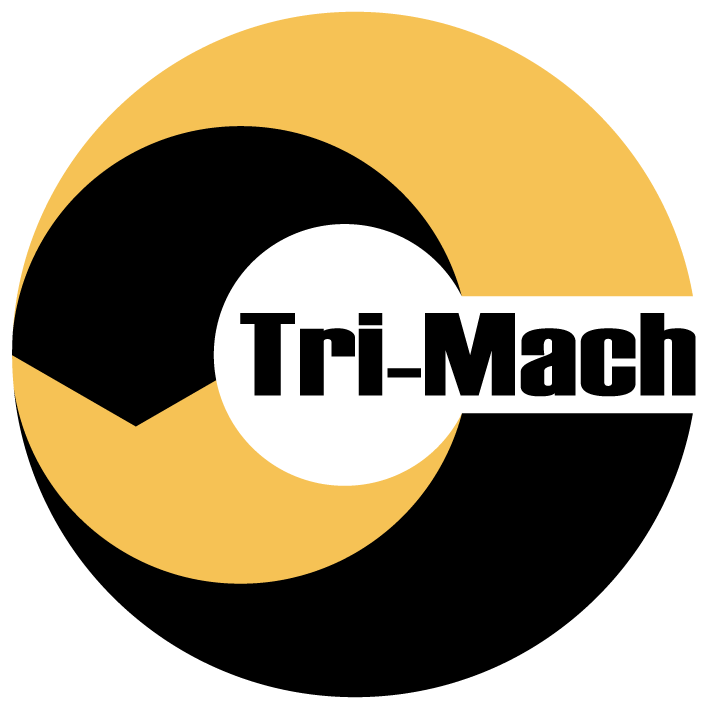DTH Hammers – Built for Demanding Rock Formations
Trimach’s DTH hammers are engineered for demanding rock formations and professional drilling operations, where endurance and drilling efficiency decide the pace of the project. A heavy piston delivers strong impact energy, while optimized airflow ensures low air consumption and steady penetration through the hardest ground. These hammers keep your operation moving — meter after meter.
Key Advantages of Trimach Down the Hole Hammers
- Endurance & Long Lifetime – Built for extreme rock formations and continuous drilling operations.
- Optimized Airflow Efficiency – Lower air consumption means drill with less comperessor, reduced fuel costs and higher drilling efficiency.
- Heavy Piston Impact Power – Delivers strong impact energy for faster penetration and better rock breaking.
- Lightweight Construction and optimized design – Easier handling on drill rigs without compromising impact performance.
- Service-Friendly Design – Quick maintenance and minimal downtime in demanding field conditions.
- Consistent Energy Transfer – Precision-machined components ensure smooth and reliable performance meter after meter.
DTH hammers are most used in hard rock formations and are designed to tackle complex tasks like drilling in populated areas without putting existing structures at risk.
How a DTH Hammer Works ?
A DTH hammer is the core power unit in down-the-hole drilling operations, converting compressed air into pure impact energy. Positioned just above the drill bit at the end of the drill string, the hammer strikes directly behind the bit — minimizing energy loss and maximizing drilling efficiency in hard rock formations.
The operation of a DTH hammer involves three actions: percussion, rotation, and flushing. During operation, compressed air flows through the hammer body, driving a piston that delivers high-frequency blows to the bit. Each strike fractures the rock, while the same air stream, that drives the piston flushes the cuttings upward through the hole, keeping the bore clean and maintaining penetration speed.
Trimach’s DTH hammers are engineered for compatibility with all major drill rigs, drill bits, and DTH drilling tools — designed for both foundation and deep hole drilling in mining, construction, geothermal, and water well projects. Optimized airflow and precision machining ensure efficient energy transfer, reduced air consumption, and consistent performance meter after meter.
Product range – Standard Technical Dimensions
| PRODUCT CODE | BIT RANGE | AIR PRESSURE (at compressor) | HAMMER DIMENSIONS | TOP SUB | ||||
|---|---|---|---|---|---|---|---|---|
| Outer Ø (mm) | Shank | Pressure (bar) | Air volume (m3/min) | Outer Ø (mm) | Length (mm) | Paino (kg) | ||
| MK-480 (48″) | 1219,2-1524 | MK 480 | 13,8 | 127,4 | 906 | 2413 | 6740 | HEX PIN |
| 17,2 | 158,6 | |||||||
| 20,6 | 184,1 | |||||||
| MK-360 (36″) | 914,4-1244,6 | MK360 | 13,8 | 115,8 | 758 | 2232 | 5011 | HEX PIN |
| 17,2 | 148,1 | |||||||
| 20,6 | 169,9 | |||||||
| MK-240 (24″) | 609,6-1016 | N240 | 13,8 | 86,7 | 533 | 2394 | 2936 | 8-5/8″ API REG BOX / Beco 10″ Box / HEX PIN |
| 17,2 | 99,1 | |||||||
| 20,6 114,1 | 114,1 | |||||||
| MK-180 (18″) | 457,2-813 | N180 / SD18 | 13,8 | 59,1 | 412 | 2175 | 1663 | 8-5/8″ API REG PIN / HEX PIN |
| 17,2 | 73,7 | |||||||
| 20,6 | 88,0 | |||||||
| MK-140 (14″) | 355,6-508 | N125 | 13,8 | 39,7 | 320 | 1928 | 924 | 6-5/8″ API REG PIN / HEX PIN |
| 17,2 | 52,1 | |||||||
| 20,6 | 65,7 | |||||||
| MK-120 (12″) | 301,6-482,6 | N120 / DHD112 / SD12 | 13,8 | 36,3 | 272 | 1957 | 655 | 6-5/8″ API REG PIN |
| 17,2 | 49,0 | |||||||
| 20,6 | 60,9 | |||||||
| Hi-MK-100 (10″) | 254-406 | SD10 / N100 | 13,8 | 33,4 | 225 | 1273 | 292 | 6-5/8″ API REG PIN |
| 17,2 | 52,1 | |||||||
| 20,6 | 65,7 | |||||||
| Hi-MK-080 (8″) | 180-324 | DHD380 / SD8 | 13,8 | 24,1 | 185 | 1167 | 201 | 4-1/2″ API REG PIN |
| 17,2 | 31,4 | |||||||
| 20,6 | 37,1 | |||||||
| MK-060 (6″) | 155-190 | DHD360 | 13,8 | 16,1 | 148 | 1171 | 110 | 3-1/2″ API REG PIN |
| 17,2 | 20,2 | |||||||
| 20,6 | 24,2 | |||||||
| MK-050 (5″) | 135-155 | DHD350 | 13,8 | 13,6 | 126 | 1134 | 79 | 3-1/2″ API REG PIN |
| 17,2 | 17,0 | |||||||
| 20,6 | 20,4 | |||||||
| MK-040 (4″) | 110-130 | DHD340 | 13,8 | 8,2 | 99 | 961 | 43 | 2-3/8″ API REG PIN |
| 17,2 | 10,3 | |||||||
| 20,6 | 12,4 | |||||||
| MK-035 (3,5″) | 90-115 | DHD3,5 | 13,8 | 6,5 | 82 | 857 | 25 | 2-3/8″ API REG PIN |
| 17,2 | 8,2 | |||||||
| 20,6 | 9,9 | |||||||
Need Customized DTH Hammers?
Every drilling setup is unique — and so are your requirements. Trimach offers custom-built DTH hammers from 3″ to 48″, designed to match your specific drill rigs, joint types, and drilling operations.
Choose from the most common backhead connections (HEX, API, BECO) or request a custom shank to fit your specific drill string and rig.
Optional shock absorbers and adapters can also be tailored for your hammer system to improve drilling efficiency and reduce vibration.
Our priority is simple: cost-effective customization, fast spare part delivery, and tools built to perform in your conditions.
Drilling Costs with Trimach’s DTH Hammers
Efficient drilling starts with the right hammer. Trimach’s DTH hammers are engineered for low air consumption, allowing them to operate effectively with less compressed air than conventional designs. This directly translates to significant fuel savings in compressor operation — reducing both operating costs and carbon footprint per drilled meter.
Our hammers maximize drilling efficiency by extending tool life and keeping maintenance intervals longer. The optimized drilling process allows you to drill deeper with fewer interruptions, saving fuel, compressor load, and overall drilling cost per meter. Precision engineering and balanced airflow mean every strike transfers full impact energy to the rock — ensuring that more power goes into progress, not losses.
Applications of Trimach DTH Hammers
Foundation and Construction Drilling
Trimach DTH hammers deliver precise hole alignment and efficient energy transfer in demanding foundation projects. Their optimized airflow and consistent impact power make them ideal for piling, anchoring, and micro-pile drilling operations in urban sites.
DTH hammers are most used in hard rock formations and are designed to tackle complex tasks like drilling in populated areas without putting existing structures at risk.
Mining and Quarrying
In hard rock mining and quarry applications, Trimach hammers maintain high penetration rates and reliability under extreme impact loads. The heavy piston design and heat-treated components ensure long service life with minimal downtime.
Geothermal and Energy Projects
For deep hole drilling in geothermal and energy applications, Trimach hammers offer stable performance and low air consumption. Efficient energy transfer and precision machining keep the hammer operating smoothly even at high depth and pressure.
Water Well Drilling
Trimach DTH hammers are trusted in water well drilling for their balance of speed, endurance, and low fuel use. The optimized drilling process allows drillers to drill deeper while maintaining consistent borehole quality and efficiency.
Sustainable energy
Trimach DTH hammers are trusted in water well drilling for their balance of speed, endurance, and low fuel use. The optimized drilling process allows drillers to drill deeper while maintaining consistent borehole quality and efficiency.
Why Choose Trimach DTH Hammers — The Number One Tool for Drillers
Superior Manufacturing, Materials and Quality Control
Trimach’s DTH hammers are built with precision and endurance in mind. Every hammer is CNC-machined, heat-treated, and tested under real drilling operations to ensure maximum performance and reliability in the field.Quality testing ensures that drilling products stand up to rigid standards.
High-strength alloys, tight tolerances, and strict manufacturing process guarantee consistent impact power and efficient air consumption — no matter the depth or formation.
Behind every hammer is a team of experts committed to delivering quality and long-term value. Our technical services include consultation on hammer selection, pressure optimization, and full support throughout your project lifecycle.
Expert support is available to assist in designing the right drilling solution. With decades of combined expertise, we help our customers achieve safer, more efficient, and lower-cost drilling — backed by equipment that’s proven to last.
Areas We Serve
We serve rig operators, site and project managers and drilling contractors across Finland, Sweden, Norway, Denmark, Switzerland, Germany, Austria, the United Kingdom, Italy, Iceland, Poland, Estonia, Latvia, and Lithuania, providing fast delivery, technical support, and customized DTH solutions for Northern and Central European ground conditions.
FAQ: DTH Hammers
Heräsikö mahdollisesti lisäkysymyksiä? Ota rohkeasti yhteyttä!

Matias Niemeläinen
ota yhteyttä
Haluatko nostaa porapaalutuksen tuotantotehoasi?
